Scientific Sessions: Friedrich Alexander University (FAU) and UCSF Workshop
Wednesday, March 29
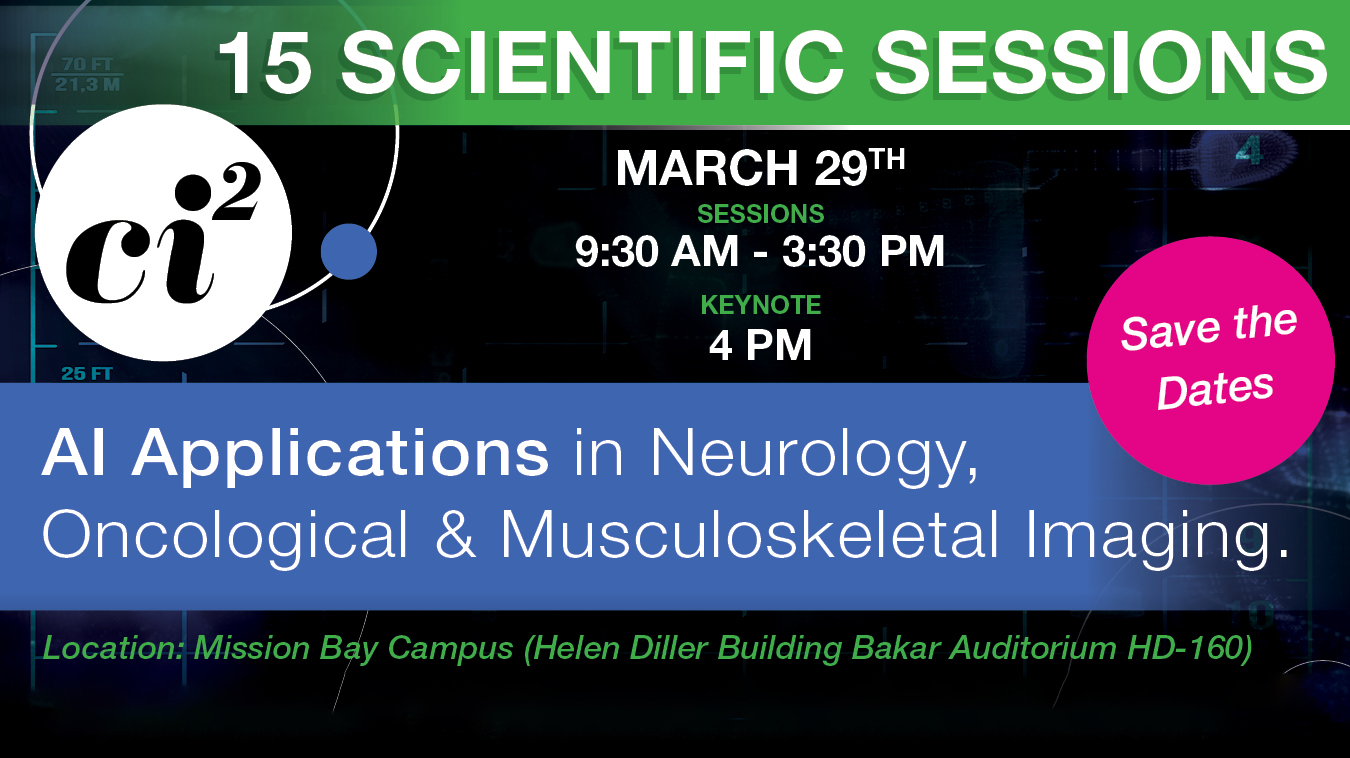
|
Start |
End |
Description |
Facilitator(s) |
Venue |
||
|---|---|---|---|---|---|---|
|
8:30 AM |
9:00 AM |
Meet & Greet / Light Breakfast |
All |
Helen Diller Cancer Research Building, HD 160 |
||
| 9:00 AM | 9:15 AM |
Welcome and Introduction |
Christopher Hess, MD, PhD Sharmila Majumdar, PhD Andreas Rauschecker, MD, PhD |
|||
|
9:15 AM |
9:30 AM |
Friedrich-Alexander Universität of Erlangen-Nürnberg (FAU) |
Joachim Hornegger, PhD President - FAU |
|||
|
9:30 AM |
3:45 PM |
Scientific Talks |
||||
|
9:30 AM |
9:50 AM |
Machine Learning for MR Image Acquisition and Reconstruction |
Florian Knoll, PhD Marc Vornehm Erik Goesche |
|||
|
9:50 AM |
10:10 AM |
Inline AI for Automated and Quantitative CMR Imaging |
Yang Yang, PhD |
|||
|
10:10 AM |
10:30 AM |
Task-Based Reduced k-Space Image Reconstruction with AI |
Aniket Tolpadi, PhD |
|||
|
10:30 AM |
10:50 AM |
Multi-scale AI Driven Imaging of Aging: from Cells to Human |
Valentina Pedoia, PhD |
|||
|
10:50 AM |
11:10 AM |
Mapping Brain Structure at Cellular Resolution |
Christoph Kirst, PhD |
|||
|
11:10 AM |
11:15 AM |
Break |
||||
|
11:15 AM |
11:35 AM |
Domain Generalization and Label-Efficient Learning in Digital Pathology and Beyond |
Katharina Breininger, PhD |
|||
|
11:35 AM |
11:55 AM |
Cracking the Black Box of Deep Sequenced-Based Protein-Protein Interaction Prediction |
David Blumenthal, MD Jana Kiederle Nicolai Meyerhoefer |
|||
|
11:55 AM |
12:15 PM |
Automated Generation of Radiology Report Impressions from Free-Text Findings Using Sentence Transformers |
Jae Ho Sohn, MD, MS |
|||
|
12:15 PM |
12:35 PM |
Information Commons |
Jason Crane, PhD |
|||
|
12:35 PM |
1:40 PM |
Lunch Break – Boxed lunches |
||||
|
1:40 PM |
2:00 PM |
Long-Tail Problems in Medical Image Analysis |
Bernhard Kainz, PhD Johanna Mueller |
|||
|
2:00 PM |
2:20 PM |
Image Processing for Neuroradiologic Diagnosis |
Andreas Rauschecker, MD, PhD |
|||
|
2:20 PM |
2:40 PM |
Robust and Ultralow-Parameter Denoising in Computed Tomography |
Andreas Maier, PhD Fabian Wagner |
|||
|
2:40 PM |
3:00 PM |
Geometry Gradients for CT Motion Compensation |
Mareike Thiess |
|||
|
3:00 PM |
3:20 PM |
Assessment of Musculoskeletal Health at the Micro-scale by Photon Counting Computed Tomography |
Andrew Burghardt |
|||
|
3:20 PM |
3:40 PM |
Prostate Cancer Assessment with mpMRI, PSMA PET, and Federated Learning |
Peder Larson, PhD Abhejit Rajagopal, PhD |
|||
|
3:40 PM |
4:00 PM |
Break |
||||
|
4:00 PM |
5:00 PM |
Keynote Address - Artificial Intelligence for Healthcare: The Road Ahead |
Dorin Comaniciu, PhD |
Helen Diller Cancer Research Building, HD 160 |
||
|
5:00 PM |
6:00 PM |
Dinner Reception |
||||
Speakers
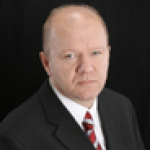
Dorin Comaniciu, PhD
Dorin Comaniciu serves as the Senior Vice President for Artificial Intelligence and Digital Innovation at Siemens Healthineers. His scientific contributions to machine intelligence and computational imaging have translated to multiple clinical products focused on improving the quality of care, specifically in the fields of diagnostic imaging, image-guided therapy, and precision medicine. He has co-authored 550 granted patents on healthcare technology and 350 peer-reviewed publications in the areas of machine intelligence, medical imaging, and precision medicine, which have received 58,000 citations, with an h-index of 97. Dr. Comaniciu is a member of the National Academy of Medicine and a Top Innovator of Siemens. He is a Fellow of the IEEE, ACM, MICCAI Society, and AIMBE, and a recipient of the IEEE Longuet-Higgins Prize for fundamental contributions to computer vision.
- LinkedIn: linkedin.com/in/dorincomaniciu
- Website: siemens-healthineers.com
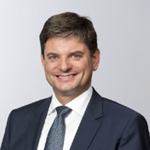
Prof. Dr.-Ing. Joachim Hornegger
Joachim Hornegger has been President of FAU since 2015. Prior to that, he was Vice President of FAU and Executive Board member (2011 -2015) where he was responsible for research and early career researchers. Dr. Hornegger has been on the FAU faculty since 2004, serving as Vice Dean of Computer Science (2009-2011). Prior to his current appointment, Dr. Hornegger was a guest researcher at MIT and Stanford, and held engineering and managerial roles at Siemens Medical Solutions where he had overall responsibility for imaging system development. Dr. Hornegger completed his doctoral degree in 1996 with a thesis on statistical object modeling and recognition. As part of his management training at Siemens, he earned an additional degree in advanced management from Duke University.
- Twitter: @Hornegger
- Website: fau.eu/fau/organisation-and-committees/executive-board/prof-dr-joachim-hornegger-president
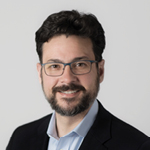
Christopher Hess, MD, PhD
Christopher Hess is the Alexander R. Margulis Distinguished Professor and Chair, Department of Radiology and Biomedical Imaging and the founding director of the Center for Intelligent Imaging (ci2) at UCSF. He has served as Chief of Neuroradiology at the San Francisco VA, and Fellowship Director and Chief of Neuroradiology at UCSF. His research addresses advanced imaging techniques and applications, especially for disorders where traditional anatomic imaging has fallen short; improved imaging approaches to the diagnosis and treatment of vascular disorders; and development and application of AI techniques for imaging sciences and clinical radiology. He is a Fellow of the American Institute for Medical and Biological Engineering (AIMBE), the American Society for Functional Neuroradiology (ASFNR), and the International Academy of Medical and Biological Engineering (IAMBE). Dr. Hess serves the ISMRM, AUR, ASNR, and International Garmisch Symposium in Radiology & Integrated Diagnostics in various board and committee leadership roles. Dr. Hess completed his MD and a PhD in Electrical Engineering at the University of Illinois.
- Twitter: @NeuroDx
- Profiles: profiles.ucsf.edu/christopher.hess
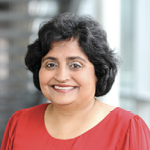
Sharmila Majumdar, PhD
Sharmila Majumdar is the Margaret Hart Surbeck Distinguished Professor in Advanced Imaging and Vice Chair for Research in the Department of Radiology Biomedical Imaging. She is co-Executive Director of the Center for Intelligent Imaging (ci2). Dr. Majumdar has been recognized with a Distinguished Investigator Award from the Academy of Radiology Research, a Gold Medal from the ISMRM, and is a Fellow of the AIMBE and ISMRM. Dr. Majumdar’s research focuses on developing machine and deep learning applications for biomedical imaging, magnetic resonance and micro computed tomography and development of image processing and analysis tools, with a focus on osteoporosis, osteoarthritis and lower back pain. She earned her MS, MPhil, and PhD in Engineering and Applied Science from Yale University.
- Twitter: @sharmilamajumdar
- Profiles: profiles.ucsf.edu/sharmila.majumdar
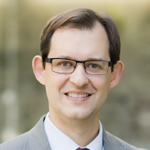
Andreas Rauschecker, MD, PhD
Andreas Rauschecker is an assistant professor in residence in the Department of Radiology and Biomedical Imaging at UCSF. In addition to directing his laboratory – the Brain Research and Artificial Intelligence in Neuroimaging (BRAIN) Lab – Dr. Rauschecker is an attending neuroradiologist at UCSF and Benioff Children’s Hospital, Associate Program Director of UCSF’s Neuroradiology Fellowship Program, co-Executive Director for the Center for Intelligent Imaging (ci2), and co-chair of UCSF’s Research Data Science Council. In 2020, he was awarded the RSNA Research Scholar Award and the ASNR Trainee Award. Dr. Rauschecker earned his MD and a PhD in Neuroscience from Stanford University.
- Twitter: @DrDreMDPhD
- Profiles: profiles.ucsf.edu/andreas.rauschecker

Prof. Dr. Florian Knoll
Florian Knoll is a professor and Head of the Computational Imaging Lab in the Department Artificial Intelligence in Biomedical Engineering at FAU since 2021. His research is focused development and application of machine learning methods to medical imaging, and their translation into clinical practice to help patients on a day-to-day level. He also initiated and served as the scientific lead of the fastMRI data sharing initiative and the associated image reconstruction challenges. In collaboration with Facebook AI Research, his research group made available a dataset of raw k-space data for more than 1,300 knee and more than 7,000 brain MRI scans. Dr. Knoll obtained his Doctor of Technology in Electrical Engineering at Graz University of Technology in 2011.
- LinkedIn: linkedin.com/in/florian-knoll/
- Website: cil.tf.fau.de/person/knoll

Marc Vornehm, MSc
Marc Vornehm is a PhD Candidate at Computational Imaging Lab at FAU in collaboration with Siemens Healthineers. He is also an elected doctoral candidates’ representative at the Faculty of Engineering. His research focuses on deep learning-based reconstruction of accelerated dynamic MRI acquisitions in the cardiac domain, for instance time-resolved cine imaging of the heart. Other research interests include segmentation and registration tasks in cardiac MRI. Vorenhem obtained his MSc in Medical Engineering at FAU in 2021.
- Website: cil.tf.fau.de/person/vornehm

Erik Goesche, MSc
Erik Goesche is a student of Data Science at FAU studying machine learning and artificial intelligence (AI). He has obtained a BS in Applied Computer Sciences at the University of Applied Sciences Mittweida.
- Linkedin: linkedin.com/in/egoesche
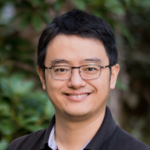
Yang Yang, PhD
Yang Yang is an associate professor in residence in the Department of Radiology and Biomedical Imaging and Director of the Mid-field MRI research program at UCSF. He was a visiting assistant professor at the University of Virginia (2019-22). He completed his PhD in Biomedical Engineering and a postdoctoral fellowship at the University of Virginia; he earned his Master’s Degree in Biomedical Engineering at Xi’an Jiaotong University, Shannxi, China. Dr. Yang’s research aims to develop and evaluate novel pulse sequences and techniques to improve the clinical utility of MRI. Current research projects are focused on fast magnetic resonance imaging technique development and its translational and clinical applications. During the COVID-19 pandemic, Dr. Yang’s research on COVID-19 imaging and artificial intelligence resulted in a technique for rapid diagnosis of COVID and a highly cited Nature Medicine AI paper.
- Twitter: @yy5ccuva
- Profiles: profiles.ucsf.edu/yang.yang
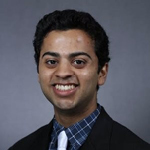
Aniket Tolpadi, PhD
Aniket Tolpadi is a graduate student in the UC-Berkeley/UCSF Graduate Program in Bioengineering with experience in medical imaging and data science. His work has centered around leveraging deep learning to accelerate acquisition of various MRI sequences and in developing predictive models of disease progression.
- Twitter: @atolpadi7
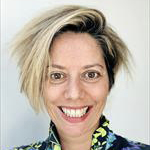
Valentina Pedoia, PhD
Valentina Pedoia a double appointment as associate professor in the Radiology and Biomedical Imaging Department at UCSF and Leader, Image Analysis at Altos Labs. She is a computer scientist by training with more than 15 years of experience in biomedical imaging. Her primary interest is in developing computer vision and machine learning algorithms to transform biomedical imaging into knowledge. Dr. Pedoia’s research spans imaging scale and modalities: from understanding fundamental mechanistic phenomena with microscopy to in vivo magnetic resonance imaging, with the common aim of exploring imaging biomarkers of aging.
- Twitter: @PedoiaValentina
- Profiles: profiles.ucsf.edu/valentina.pedoia
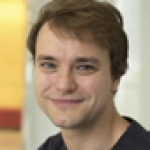
Christoph Kirst, PhD
Christoph Kirst is an assistant professor of Anatomy at UCSF. His research encompasses developing theory and dynamical systems tools, machine learning and data analysis algorithms, and whole brain mapping methods to characterize and understand flexible brain function. Dr. Krist’s interests include computational neuroscience, neuro-modulation, non-linear dynamics, and neuronal networks. He obtained his Dr. rer. nat. and PhD in Theoretical Physics at the Max Planck Institute for Dynamics and Self-Organization in Germany. Dr. Krist has been awarded the Kavli Fellow award (2016 – 2018), the Fellow for Physics and Biology award (2013 – 2016) and the Dr. Berliner - Dr. Ungewitter Prize for outstanding dissertation (2012).
- Twitter: @Christophkirst
- Profiles: profiles.ucsf.edu/christoph.kirst
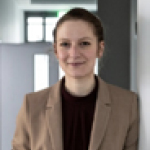
Prof. Dr. Katharina Breininger
Katharina Breininger has been an assistant professor at FAU since 2020. Currently, with her group, the Artificial Intelligence in Medical Imaging (AIMI) lab, she focuses on interdisciplinary questions in medical imaging across applications and modalities by developing robust and reliable machine learning approaches. She completed her PhD in 2020 on interventional X-ray imaging in cooperation with Siemens Healthineers and studied Computer Science in Marburg and Erlangen (Germany), delving into the field of medical image analysis during her bachelor’s and master’s degree. Prior to her appointment at FAU, she interned at Siemens Healthcare US in collaboration with the Brigham and Women’s hospital and Massachusetts General Hospital in Boston, MA.
- Twitter: @k_breininger
- Website: aimi.tf.fau.de/person/katharina-breininger
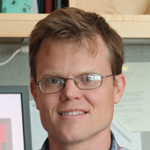
Peder Larson, PhD
Peder Larson is a professor in residence and the principal investigator and director of the Body Imaging Research Group in the Department of Radiology and Biomedical Imaging at UCSF. Dr. Larson's research program includes a range of advanced imaging technology development targeting improved clinical outcomes, with projects on metabolic MRI, lung MRI, myelin imaging, PET/MRI, and radiation therapy planning. He is an active member of the Hyperpolarized MRI Technology Resource Center (HMTRC) at UCSF, the International Society for Magnetic Resonance in Medicine (ISMRM), the Institute for Electrical and Electronics Engineering, the UC Berkeley and UCSF Graduate Group in Bioengineering, the California Institute for Quantitative Biosciences, and the Bakar Computational Health Sciences Institute. Dr. Larson earned an MS and PhD in electrical engineering from Stanford University.
Twitter: @pezlarson
Profiles: profiles.ucsf.edu/peder.larson
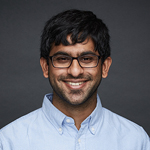
Abhejit Rajagopal, PhD
Abhejit Rajagopal is a Postdoctoral Fellow in the Department of Radiology at UCSF, working closely with Peder Larson, PhD, and Thomas Hope, MD. He holds appointments at the San Francisco VA Medical Center as a Staff Researcher and at Toyon Research Corp. where he is a Senior Analyst. Dr. Rajagopal is a deep learning expert, and his research involves designing robust machine learning algorithms for image reconstruction and classification of MRI, PET, CT, SPECT, LIDAR, and radar. His current work and funding are focused on prostate cancer imaging, recognition, and radiotherapy planning, and has broad applicability to other organ systems. His foundational work is focused on understanding and quantifying the generalization properties of deep networks. Website:
- Profiles: profiles.ucsf.edu/abhejit.rajagopal
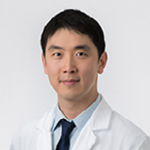
Jae Ho Sohn, MD, MS
Jae Ho Sohn is an assistant professor in the Department of Radiology and Biomedical Imaging at UCSF. Dr. Sohn co-founded the Big Data in Radiology (BDRAD) research team and mentors undergraduate, medical students, residents, scientists, and engineers in data science projects in radiology. His research addresses big data and radiology, specifically lung cancer screening, natural language processing, and related cardiothoracic imaging topics. His work has received media coverage from Washington Post, Times UK, Scientific American, AuntMinnie Newsletter, and others. He participated in machine learning competitions, scoring top 2% in the Kaggle Data Science Bowl for lung cancer detection. He has won the global oncology award from the Stanford Health++ hackathon. He completed his residency (2020) and clinical fellowship (2021) at UCSF.
- Twitter: @sohn522
- Profiles: profiles.ucsf.edu/jae.so
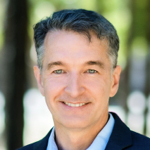
Jason Crane, PhD
Jason Crane is the director of the Computational Core at the Center for Intelligent Imaging (ci2) and the UCSF Department of Radiology and Biomedical Imaging. The Computational Core aims to improve health care using data science and AI-based research and development. Dr. Crane is an active member of UCSF Scientific Computing Services, 3D Lab, and Information Commons. He obtained his MS in Physical Chemistry from University of Chicago, and a PhD in Physical Chemistry at the University of California, Berkeley.
- Profiles: profiles.ucsf.edu/jason.crane
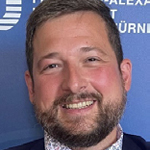
Prof. Dr. Bernhard Kainz
Bernhard Kainz is a Professor and Chair for Data, Sensors and Devices / Department Artificial Intelligence in Biomedical Engineering (AIBE) at FAU and an Associate Professor at the Imperial College London. Dr. Kainz’s research is about intelligent algorithms in healthcare, especially Medical Imaging. He is working on self-driving medical image acquisition that can guide human operators in real-time during diagnostics. His areas of expertise are human-in-the-loop AI computing, machine learning, medical image analysis and GPU accelerated algorithms. He obtained his PhD at the Graz University of Technology in 2011, with a dissertation on: "Ray-Based Image Generation For Advanced Medical Applications"
- Twitter: @BernhardKainz1
- Website: bernhard-kainz.com

Johanna Mueller, PhD Student
Johanna Mueller is a PhD student at the Image Data Exploration and Analysis (IDEA) Lab at FAU and Imperial College London. Her research intention is focused on medical imaging data analysis and development of novel methods for straightforward, efficient, and user-friendly applications for medical screening and diagnosis. Mueller obtained her MS in Stimulation Sciences at RWTH Aachen University in 2021
- Website: idea.tf.fau.eu/person/johanna-muller
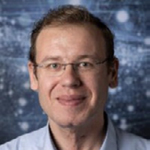
Prof. Dr. Andreas Maier
Andreas Maier is Professor and head of the Pattern Recognition Lab at FAU since 2015. Prior to his appointment at FAU, he was an Innovation Project Manager at Siemens Healthcare, where he was responsible for reconstruction topics in the Angiography and X-ray business unit. In 2018, he was awarded an ERC Synergy Grant “4D nanoscope”. Dr. Maier studied Computer Science and received his PhD in 2009. His major research subject was medical signal processing in speech data. In this period, he developed the first online speech intelligibility assessment tool – PEAKS – that has been used to analyze over 4.000 patient and control subjects so far. His current research interests focus on medical imaging, image and audio processing, digital humanities, and interpretable machine learning and the use of known operators.
- Website: lme.tf.fau.de/person/maier
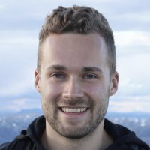
Fabian Wagner, MSc
Fabian Wagner is a PhD student at Pattern Recognition Lab, at FAU since 2020. He obtained his MS in Physics at FAU in 2020. At the lab, Wagner assisted with various research, such as using the robust and interpretable low-dose CT denoising in context of the 4D+nanoSCOPE and advancing osteoporosis medicine by observing bone microstructure and remodeling using a four-dimensional nanoscope.
- Website: lme.tf.fau.de/person/wagner
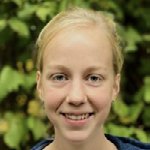
Mareike Thies, MSc
Mareike Thies, MSc is a Researcher and PhD student candidate at Pattern Recognition Lab at FAU. At the lab, she assisted with research using advancing osteoporosis medicine by observing bone microstructure and remodeling using a four-dimensional nanoscope. She also obtained her MS in Medical Engineering at FAU and completed her thesis at Johns Hopkins University, Baltimore in 2020.
- Website: lme.tf.fau.de/person/mthies
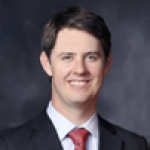
Andrew Burghardt
Andrew Burghardt is an imaging scientist in the Department of Radiology and Biomedical Imaging at UCSF where he serves as the Technical Director of the Quantitative Micro-Imaging Facility (QMIF). At UCSF he is developing a multidisciplinary program to study skeletal development in transgender youth. Burghardt is a founding member of the SPECTRA group (Study GrouP for XTrEme-CT in RA) that aims to develop standard methods to detect and quantify early signs of progression and treatment response in rheumatoid arthritis using HR-pQCT. His area of expertise is high-resolution imaging computational analysis of musculoskeletal tissues.
- Twitter: @aburghardt
- Profiles: profiles.ucsf.edu/andrew.burghardt
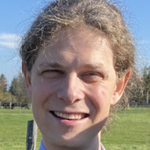
Prof. Dr. David B. Blumenthal
David Blumenthal is a professor and head of the Biomedical Network Science Lab at the Department of Artificial Intelligence in Biomedical Engineering of FAU. His lab investigates molecular disease mechanisms, using techniques from network science and artificial intelligence. They also develop privacy-preserving decentralized biomedical AI solutions, which enable cross-institutional studies on sensitive data. Prior to his appointment at FAU, he was a Postdoctoral fellow (2019-2021) at the Chair of Experimental Bioinformatics, Technical University of Munich, Freising, Germany. Dr. Blumenthal obtained his PhD in 2019 in Computer Science at Free University of Berlin.
- Twitter: @dbblumenthal
- Website: bionets.tf.fau.de/person/david-b-blumenthal
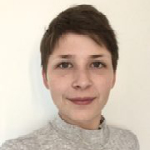
Jana Kiederle, BSc
Jana Kiederle, BSc has been a Student Assistant in the Department Artificial Intelligence in Biomedical Engineering (AIBE) and Biomedical Network Science Lab at FAU since 2021. She obtained her BS in Medical Engineering in 2021 at FAU.
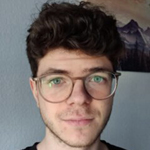
Nicolai Meyerhoefer, BSc
Nicolai Meyerhoefer has been a Student Assistant in the Department of Artificial Intelligence in Biomedical Engineering (AIBE) and Biomedical Network Science Lab at FAU since 2023. Prior to this, he was a tutor at the Chair of Computer Science 12 (Hardware-Software-Co-Design) at FAU. Meyerhoefer also obtained his MS in Computer Science in 2021 at FAU.
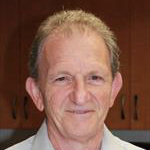
David Saloner, PhD
David Saloner, PhD is a professor in the Department of Radiology and Biomedical Imaging, and director of the Vascular and Cardiac Research Group at UCSF. He is also the director and founder of the Vascular Imaging Research Center at the San Francisco Veterans Affairs Medical Center. His research program focuses on the study of cardiovascular diseases using radiological imaging methods. Projects include numerical simulations, phantom studies, and longitudinal in vivo studies of vascular evolution over time. Dr. Saloner obtained his Dr.rer.nat in Nuclear Physics from Karl-Ruprecht University in Heidelberg, Germany in 1978. He obtained his BSc in Physics, Math, and Applied Math from the University of Witwatersrand in Johannesburg, South Africa and he completed a BSc in Theoretical Physics, MSc in Nuclear Physics from the same institution.
- Profiles: profiles.ucsf.edu/david.saloner
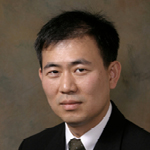
Youngho Seo, PhD
Youngho Seo is a professor and director of Nuclear Imaging Physics in the Department of Radiology and Biomedical Imaging, Professor in the Department of Nuclear Engineering at the University of California, Berkeley, Physicist Faculty Scientist at Lawrence Berkeley National Laboratory. He completed a master's degree in Physics at the University of Alabama in Huntsville and obtained his second master's degree and PhD in Physics at the University of California, Los Angeles (UCLA). His primary research focus is to use quantitative SPECT/CT, PET/CT, and PET/MR molecular imaging tools for a broad range of research areas from small animal imaging using dedicated animal imaging systems and basic instrumentation development for physics analysis of clinical research data.
- Profiles: profiles.ucsf.edu/david.saloner
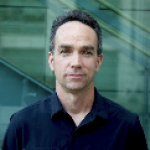
Benjamin Polacco, PhD
Benjamin Polacco is a Bioinformatics Programmer for the Krogan Lab at UCSF in the Department of Radiology and Biomedical Imaging. At the Krogan Lab, he helped build web tools for exploration and analysis of protein families in metagenomes and developed and maintained Structure Function Linkage Database. Prior to his role in the Krogan lab, Dr. Polacco was a Postdoctoral Researcher at UCSF, working with Dr. Susan Miller in developing software tools for discovering and visualizing mercury-modified proteins in a shotgun proteomics procedure and conducted quantitative and qualitative analyses of LC-MS/MS proteomics. He obtained his PhD in Bioinformatics at UCSF in 2007.
For more information about this debate event please email Sharmila Majumdar, or Duygu Tosun-Turgut. If you have questions about debate logistics, please email Steaven Campbell, or Pei Ting Liu (Annie).

